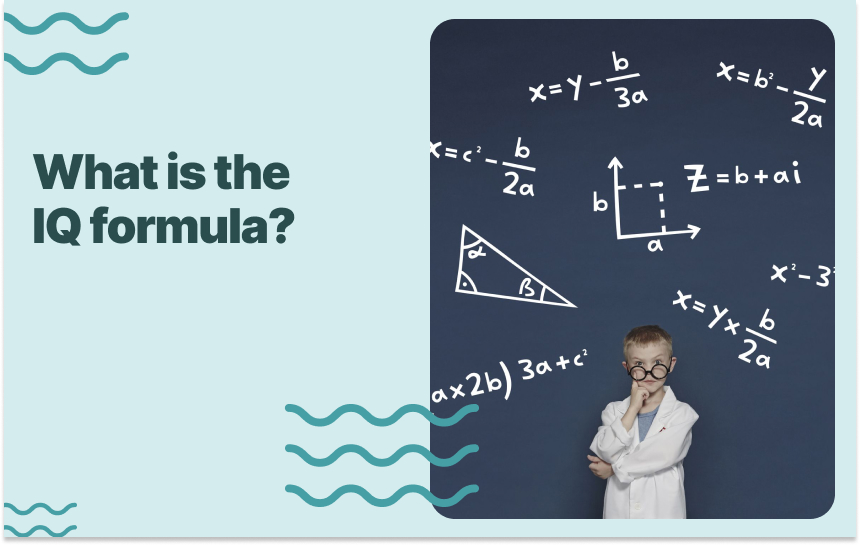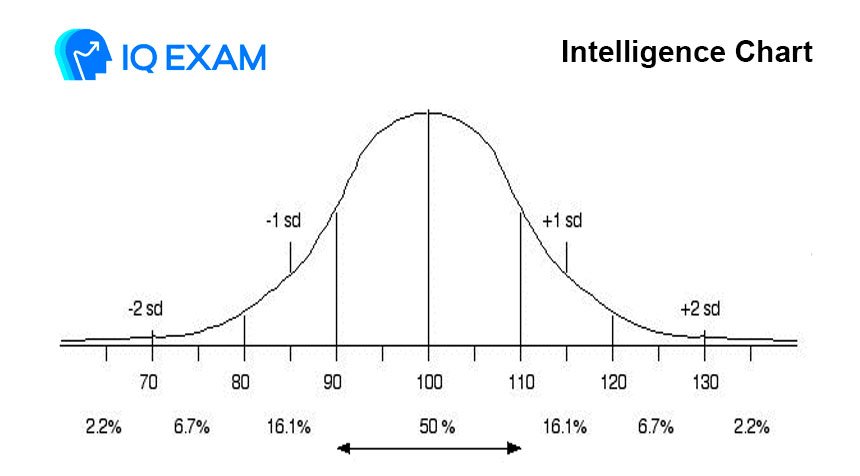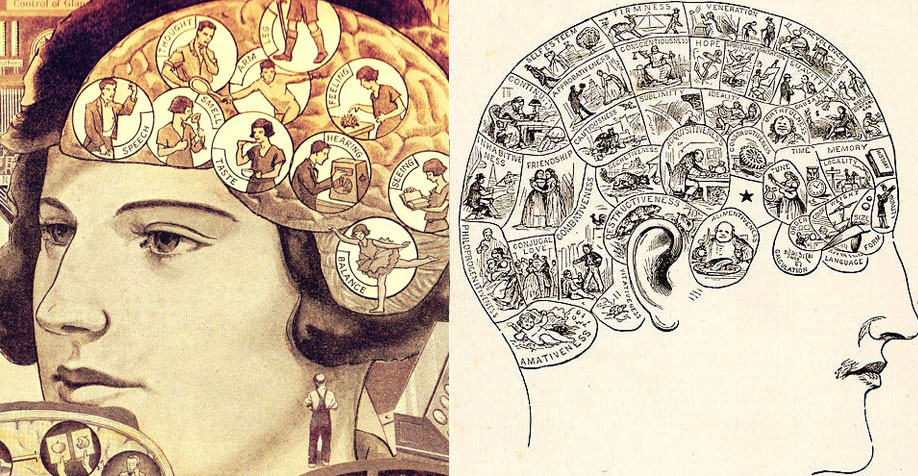
Intelligence quotient (IQ) is one of the most commonly used mental abilities tests in the world. It helps identify an individual’s intelligence based on their performance on a test. IQ tests are available in different languages and can be taken by anyone, regardless of age or education. regardless of age or education. IQ is considered a heritable trait and is believed to differ between individuals by around 100 points. The intelligence quotient formula is a mathematical formula that can be used to calculate your IQ.
Intelligence is an individual’s capability to obtain knowledge (such as learning and understanding), use knowledge (solve problems) and participate in abstract reasoning. Intelligence is the mental ability, an essential aspect of a person’s well-being. For more than a century, psychologists have been trying to measure people’s intelligence.
IQ is calculated by measuring the ratio of mental age to biological age and multiple it by 100. For example, if a 10-year-old child has a mental age of 12, you can calculate the child’s IQ as 12/10 multiplied by 100 or 120. Therefore, you can use this simple formula: IQ = mental age ÷ chronological age × 100.

- Under 70 [intellectually disabled] — 2.2%
- 70-80 [borderline] — 6.7%
- 80-90 [low average] — 16.1%
- 90-110 [average] — 50%
- 110-120 [high average] — 16.1%
- 120-130 [superior] — 6.7%
- Over 130 [very superior] — 2.2%
Measurement of Intelligence: What is IQ?
The intelligence quotient (IQ) is a measure of intelligence that can be calculated using various methods. The most accurate IQ score is achieved when many different methods are used to calculate a person’s intelligence. Choosing the right IQ calculation method is important, as the results will be more accurate.
Additionally, knowing your IQ score can provide insights into your cognitive abilities and help you improve learning opportunities. It’s also important to know that your IQ is not static – it can change over time as you gain or lose intelligence. So, whether you’re looking to boost your IQ score or just understand your intelligence better, using various methods will give you the most accurate answer.
How to measure IQ?
IQ is a measure of intelligence that can be calculated in a variety of ways. The most common way to measure IQ is by taking a standardized test. There are many different tests available, so it’s important to find one that best suits your needs and interests. After selecting the appropriate test, score yourself and compare your results to those of other people who have taken the same test.
Additionally, intelligence can be measured through a variety of other means. For example, you can use your mental age to calculate your IQ score. Your mental age is the chronological age minus 10 years – so someone who is 25 years old would have an intellectual age of 20 years old.
Or, you could use the quotient formula: IQ = mental age ÷ chronological age × 100. In this equation, mental age represents your intelligence, while chronological age represents your physical or biological aging process. So, if someone’s mental and chronological ages are both 30 years old but their physical or also important to keep track of your IQ score over time so you can see how it changes with age or education level. IQ is a powerful instrument that can help you understand yourself better and your potential. Therefore, if you’re afraid to test your intelligence, don’t be!
What Does an IQ Test Measure?
The intelligence quotient (IQ) is a score that is commonly used to measure intelligence. An IQ test is designed to measure your intelligence and is one of the most popular tests taken in schools. Scores on an IQ test vary depending on a person’s age and nationality, but they generally range from 90 to 130. Generally speaking, people with a higher IQ score are more likely to achieve high academic achievement.
However, an IQ score isn’t always indicative of success in life. For example, someone with a score of 130 might not be as successful in the workplace as someone with a score of 110. However, an IQ score does provide valuable information about your cognitive abilities. Knowing your IQ score can help you understand your strengths and weaknesses and can help you achieve your goals.
History of measuring intelligence
Since the early 20th century, intelligence has been measured in a variety of ways. The IQ test is the most popular, which was first developed in the early 20th century. The IQ test measures your intellectual abilities on a scale from 1-130, with 130 being average intelligence. If you’re interested in calculating your own IQ score, there are a number of resources available online.
Additionally, intelligence is not just something that is limited to humans. Many animals have been found to exhibit intelligence quotient (IQ) scores comparable to or even more significant than human beings. So, intelligence is not just a human thing, after all!

How to calculate your mental age?
Your chronological age is your biological age or the number of years you have lived. It doesn’t align with what psychologists define as “mental age.”
Explaining the difference between these two terms is essential, especially for preparing a program to provide very intelligent or mentally disabled people. But the techniques by which psychologists measure mental age are minimal.
Standard tests such as the Stanford-Binet IQ test are valid; doctors use these tests to identify people with extreme disabilities or low education.
After taking an IQ test, use this formula for calculating your mental age: IQ=MA/CA * 100. In this formula, “MA” is your mental age, and “CA” is your chronological age. So, if you are 20 years old (your chronological age) and your IQ score is 120, the formula will work like this: 120= x / 20 * 100; here, “x” is your mental age.
Is intelligence hereditary or environmental?
It is possible to consider a genetic background for intelligence. But many environmental factors can also affect intelligence, such as parental motivation, good school, reasoning skills, good nutrition, physical trauma, infectious disease, etc. All these elements can help a person become more or less intelligent in the long term.
These factors are essential, and we should pay attention to them. Most intelligence is acquired by genetics and is related to brain ability. If your brain is developed well and you don’t have any genetic flaws, and live in a good environment, then your brain will work fine.
But suppose you already live in a decent environment but still carry some genes which cause you a brain deficiency. In that case, it will be challenging to acquire high intelligence.
Different types of intelligence
Is intelligence one thing (referred to as g)? Many researchers believe it is. Or is it many things? Some suggestions include the following:
Some researchers believe intelligence is one thing, and some others believe intelligence has many types; some of them are as below:
- Verbal, numerical, spatial, reasoning, perceptual speed
- Fluid vs. crystallized
- Linguistic, musical, logical-mathematical, spatial, bodily-kinesthetic, intrapersonal, and interpersonal (Gardner)
Types of IQ Tests
Psychologist Alfred Binet invented the first intelligence test in the early 1900s. Modern IQ testing started with Henry Herbert Goddard, who translated the Binet test into English. This test measures the primary intellectual performance in US schools.
Goddard is still a controversial character in psychology history. The reason is his debate that adults with low IQs shouldn’t reproduce. Fortunately, society moved away from this perspective a long time ago. Today many different IQ tests are available for other purposes, and most help diagnoses learning disabilities.
Psychologists worked very hard to evolve a countless number of tests. Most of these tests are suitable for elementary schools, but others can also be used for adults.
The most common IQ tests are:
- Stanford-Binet Intelligence Scale
- Universal Nonverbal Intelligence
- Differential Ability Scales
- Peabody Individual Achievement Test
- Wechsler Individual Achievement Test
- Wechsler Adult Intelligence Scale
- Woodcock-Johnson III Tests of Cognitive Disabilities
Social issues of IQ tests
A sensitive subject is a difference between groups in matters of intelligence. Some groups have higher or lower average IQ than others. The reason for their higher intelligence could be environmental or hereditary.
This debate can be problematic because stereotypes cause judgments for many individuals, leading to poor decisions about people based on the group they belong.
The most significant complication for society and, of course, individuals regarding intelligence is a mental disability often referred to as mental retardation. Low intelligence is classified into many subcategories as below:
- 0 – 20 (profound) — needs nursing care
- 20 – 35 (severe) — can learn to talk and develop healthy habits
- 35 – 50 (Moderate) — able to study to the second grade, needs sheltered care
- 50 – 70 (mild) — ale to survey to the sixth grade, need minimal self-supporting
The complications of measuring intelligence level
The intelligence quotient test has come a long way, but it still has a long way to go. IQ tests need to be more comprehensive for non-academic reasoning, and it has to be less focused on previous learning history. The most significant problem we have with testing is the application of results.
People are willing to pay attention to test scores. They should pay more attention to the inclusive information that test results provide about a person’s capabilities. That is why we shouldn’t use intelligence tests to decide children’s education and adults’ occupational future.
The IQ equation
There’s no question that intelligence is one of the most important factors in success. But how do you measure it? The IQ equation is a simple way to calculate your intelligence, and anyone can use it. Simply multiply your two measured IQs, and you’ll have your brainpower score.
Using the IQ equation can be a great way to start if you’re looking to boost your intellect. It’s a quick and easy method that anyone can use – no doctor required! So go ahead, take the plunge and calculate your IQ today!
Conclusion
So, you’ve been wondering what the IQ Formula is and how to calculate your IQ. Well, let’s take a look! IQ is a measure of intelligence and is determined by a number of factors, including age, education, and test score. By following the instructions outlined in this blog, you can calculate your IQ score and learn more about your intelligence quotient. So what are you waiting for? Start calculating your IQ today!
